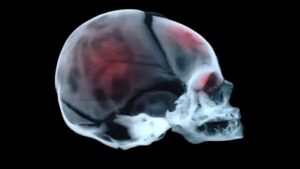
UPDATE: Chinese President Xi Jinping has urgently called for efforts to advance “reunification” with Taiwan following the election of Cheng Li-wun as the new leader of the Kuomintang (KMT). Cheng’s election took place on Saturday, amid rising tensions with Beijing, which continues to assert its claim over the democratically governed island.
Cheng, a former MP, will officially assume leadership of the KMT on November 1. Her victory comes during a politically charged atmosphere where accusations of Chinese interference have been rampant. The KMT, traditionally seen as Beijing’s favored partner, aims to strengthen ties with China, while Taiwan’s government vehemently opposes these sovereignty claims.
In his message to Cheng, Xi emphasized the need for both parties to “unite the vast majority of people in Taiwan to deepen exchanges and cooperation,” according to the official Xinhua news agency. He stressed the importance of “advancing national reunification,” highlighting the urgency of this call in light of the current political climate.
Cheng did not explicitly endorse union with Beijing in her response. Instead, she stated that both sides of the Taiwan Strait are “members of the Chinese nation,” a phrase often used to express ethnic solidarity rather than political affiliation. She advocated for strengthening “cross-Strait exchanges and cooperation” to promote peace and stability.
The KMT, while losing the presidential election last year, maintains a significant presence in Taiwan’s parliament, holding the most seats alongside its ally, the Taiwan People’s Party. Cheng’s leadership marks a pivotal moment for the party, as she opposes increased defense spending—a key policy of current President Lai Ching-te and his Democratic Progressive Party (DPP).
Accusations against the KMT regarding Chinese interference have surfaced, with Jaw Shau-kong, a vice presidential candidate from last year’s election, alleging that disinformation campaigns targeted his party during the campaign. Jaw stated on social media that the KMT must combat pro-China influence, asserting that the election is purely a matter for Taiwan voters, not mainland China.
Late on Saturday, DPP spokesperson Justin Wu highlighted what he described as “clear signs” of Chinese meddling in the KMT election, comments that the KMT has dismissed as unfounded.
As these developments unfold, the international community watches closely. The potential for escalating tensions between Taiwan and China remains high, with both sides poised for a critical dialogue moving forward. Stay tuned for further updates as this situation develops.





